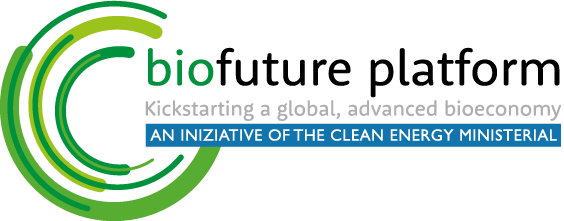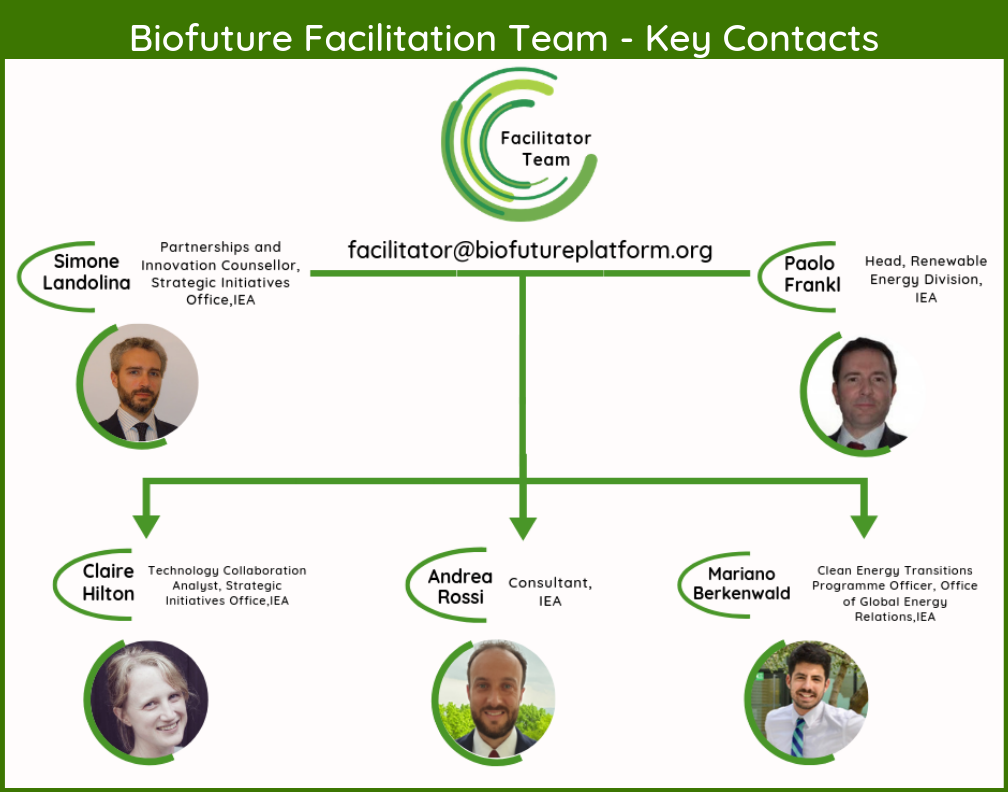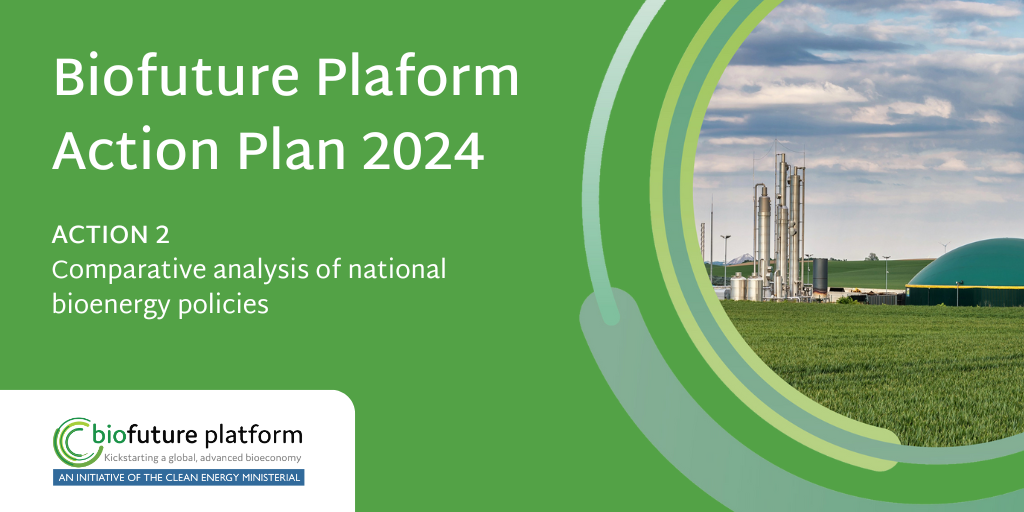Dear Member/Partner,
The Biofuture Platform Initiative has now a newsletter! The aim is to highlight, in a concise format, what the Biofuture Platform, its member countries, and the Facilitator team at the International Energy Agency (IEA) are up to in lighting the path to a sustainable low-carbon bioeconomy. It will be issued on a quarterly basis. I´m very pleased to introduce the Facilitation team at the end of this issue.
Thank you for being a part of the sustainable low carbon bioeconomy community and helping to implement the sustainable Biofuture we need.
My Best Regards,
Renato D. Godinho Biofuture Platform Chairperson and National Focal Point for Brazil
…………………………………………………………………………………..
What´s up
II Biofuture Summit
The II Biofuture Summit will take place, this year, in São Paulo, on 30-31 October 2019.
There is an emerging international consensus that scaling up the sustainable low-carbon bioeconomy is an imperious necessity. The best ways and instruments to achieve this goal are being harnessed by countries, entrepreneurs, and scientists around the world. Join policymakers from the Biofuture Platform’s 20 founding countries, industry stakeholders, researchers, and others in the second edition of the Biofuture Summit, in São Paulo. Exchange lessons in national policies, innovation, technologies, financing, and supply chain management, and help build a blueprint for the global biofuture we need.
The Summit is jointly organized by the Government of Brazil, Chair of the Biofuture Platform; by the IEA the Biofuture Platform´s Facilitator; and by the Brazilian Association for Bioinnovation (ABBI). The program for the event, logistics, and registration will be available soon. Participation is free, subject to availability.
………………………………………………………………………………….
Recent highlights
Renewable Industry Advisory Board’s Annual Meeting
In early April, in Paris, the IEA´s Renewable Industry Advisory Board annual meeting (RIAB) took place. The Board, made up of a selected group of leading industry stakeholders from the renewable energy sector, was established in 2012, to enhance industry contact with the IEA and its Renewable Energy Working Party. While originally oriented towards the electricity sector, there is growing participation from bioenergy companies in the RIAB. The meeting held in April was particularly relevant to the Biofuture Platform, as its focus was on innovation in sustainable bioenergy. There was active participation of multiple industry leaders, confirming the growing recognition for the key role of bioenergy, the overlooked giant among renewables, in ensuring secure and sustainable energy supply. Discussions focused on the types of policies needed to support bioenergy technology innovation, on the sustainability of bioenergy and related perceptions by civil society and policy-makers. There was strong interest in the topic and considerable follow-up from selected industry representatives involved in the meeting. There is noticeable convergence between the actions preconized by the industry and the Biofuture platform list of proposed Strategic Objectives. These are the key messages of the event:
-Stop-and-go policies should be avoided in favor of a stable, long-term policy framework;
-Policy harmonization and alignment should be promoted, and distortionary effects mitigated;
-Green/climate finance and bonds should be mobilized to support investments in modern bioenergy;
-Tailored support for innovation is needed, according to the level of novelty of the technologies and regional circumstances. Negative impacts can be mitigated by supporting a broad mix of innovative technologies;
-More work is needed on sustainability, especially in terms of perceived risks, in order to improve social acceptance of bioenergy investments.
IEA Bioenergy ExCo 83 and Seminar on Sustainability Governance of Biomass
On May 23rd, 2019, a workshop on sustainability governance was held in the Netherlands, in the context of the Executive Committee meeting of the IEA Bioenergy Technology Collaboration Programme (TCP). The event was co-organized by the Biofuture Platform in partnership with the IEA Bioenergy TCP, IEA, FAO, IRENA, Below50, GBEP, and Netherlands Enterprise Agency (RvO) as the local host. Around 100 participants explored relevant sustainability governance frameworks, what may be missing, how cross-sector collaboration among policy, market actors and civil society could support a sustainable bioeconomy, and identified key messages. First, sustainable bioeconomy, and especially modern bioenergy, can provide various co-benefits, such as increased diversity of energy supply; improved energy access; agricultural and rural development; improved waste management; and job creation. For this reason, in addition to climate change mitigation, the sector can play an important role in the implementation of the 2030 Agenda and related Sustainable Development Goals. Second, modern bioenergy needs to be globally and locally assessed and promoted in the context of – and in integration with – other renewable energy options and biomass end-uses, so as to maximize synergies and minimize trade-offs. Third, clear and flexible policy frameworks, linked to demonstrating sustainability, can speed up the deployment of the most beneficial forms of bioenergy. Effective policy frameworks exist, but they need to cover a larger share of bioenergy consumption, both in terms of countries and end-uses. Sustainability governance schemes should entail a set of minimum criteria and science-based indicators to be applied to all biomass. Lastly, improved understanding of the sector and benefits, and cooperation among stakeholders along the various stages of the bioeconomy/bioenergy supply chain is necessary.
10th Clean Energy Ministerial
At the 10th Clean Energy Ministerial, Brazil convened a side event entitled ‘Sustainable bioenergy and biofuels: the road to low-carbon transitions’ (Vancouver, 29 May 2019). This side event provided an opportunity to discuss how a new possible workstrand on bioenergy would advance the CEM mission, including through synergies with other multilateral efforts. The event was moderated by the IEA, which also gave a presentation on the key role of bioenergy in the current and future energy mix and in achieving the Paris climate targets. Around 50 participants attended it, including senior representatives from the Biofuture Platform’s Core Group and other CEM delegates, leading private sector stakeholders and experts from key research institutes. The challenges of i) improving the general knowledge on the benefits of bioenergy (often wrongly considered unsustainable and innovation-unfriendly); ii) guaranteeing a transparent, fair and technology-agnostic sustainability framework; iii) stimulating technology in a flexible way and iv) ensuring an environment that includes financing were identified as areas that can benefit from the creation of an initiative under CEM, in association with the IEA and the Biofuture Platform. The 11th CEM will take place in Santiago, in 2020, which would constitute the perfect opportunity to launch a new sustainable bioenergy initiative under the Clean Energy Ministerial.
…………………………………………………………………………………..
Topic on focus
Financing Bioenergy
On December 2018, the World Bank Group announced a new set of climate targets for 2021-2025, doubling its current 5-year investments in support of climate action by countries, bringing the total amount to around $200 billion. One of the main sectors targeted by this initiative is energy, with support for the generation, integration, and enabling infrastructure for 36 GW of renewable energy, as well as energy savings in the order of 1.5 million GWh. The 2018 Biofuture Platform report “Creating the Biofuture: A Report on the State of the Low Carbon Bioeconomy” showed that investments in modern and sustainable bioenergy are far below what is needed. It also discussed how advanced biofuels and bioproduct projects have substantial costs and risks, making investment decisions inherently difficult, especially in the lack of stable public sector support and funding, which could help catalyze more private investments. The report identified investment gap in bioenergy as one of the most important barriers that limit the development and deployment of biofuel and bioproduct markets. According to IFC CEO, Philippe Le Houérou, the idea is to proactively seek opportunities for the private sector to invest in projects that will help save the planet, use de-risking tools, and crowd in private sector investment, in order to help mobilize additional finance for various sectors, including renewable energy.
…………………………………………………………………………………..
In case you missed it:
Best news of the quarter from Biofuture member countries and partner agencies
Companies from Brazil and Denmark launch world’s first demo industrial plant for making renewable polyester.
A pioneering demonstration unit was commissioned by @BraskemBio and @HaldorTopsoe to make MEG, a plastic compound, from sugar. It´s a new technology that’ll shorten the process, make it more economically competitive and improve plastic #sustainability https://t.co/v1PAzq6GAH — Biofuture (@Biofuture_) February 20, 2019
Presenting the IEA Facilitation Team
Since its launch in November 2016, the Biofuture Platform has worked closely with the IEA on a range of efforts, including analysis and promotion of innovative bioenergy technology, effective policies, sustainability governance and multilateral collaboration. In February 2019, the IEA officially took over the Facilitator functions of the Biofuture Platform working closely with the Platform’s Core Group, which is led by Brazil and also includes India, the United Kingdom, Canada, and The Netherlands, to design and implement a plan of work in pursuit of the Platform’s mission. In addition, the IEA is seeking to further deepen its engagement and strengthen collaboration with key multi-lateral efforts on bioenergy, including the IEA Bioenergy TCP. The Facilitation team draws from expertise across the Agency, including the Strategic Initiatives Office, the Renewable Energy Division, and the Office of Global Energy Relations.
SUBSCRIBE TO OUR NEWSLETTER





